
Select City
Urology is a medical specialty that focuses on the diagnosis and treatment of diseases and disorders of the male and female urinary system, along with medical conditions of the male reproductive system. Some common urological disorders are urinary tract infections (UTIs), urinary incontinence, etc.
You should visit a urologist if you have any pain, discomfort, or difficulty while urinating, as that may be a sign of dysfunction of the bladder, kidneys, ureters, or urethra. If you are experiencing any of these issues, you should consult an expert urologist near you.
Pristyn Care is a leading surgery provider and is associated with the best urologists in India. We have listed some of the most common treatments provided at Pristyn Care below. Book an appointment for a free consultation for your urology problem today.

Formation of stones in the kidneys that cause immense pain ...
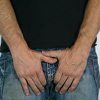
Inability to foreskin pull back the foreskin from the tip of the penis ...

Laser procedure to remove the foreskin of the penis ...
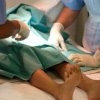
Foreskin removal for a teenager using a stapler ...
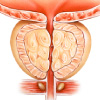
Swelling up of prostate that causes several urinary issues. ...

Treating kidney stones via controlled sound waves ...
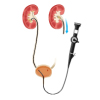
Non-invasive procedure to treat large kidney stones ...
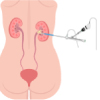
Minimally invasive surgery to remove large kidney stones ...
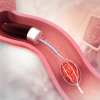
Surgical procedure to treat stones using ureteroscopy ...

Surgical procedure to remove hydrocele ...
Choose Your City
It help us to find the best doctors near you.
Ahmedabad
Bangalore
Bhubaneswar
Chandigarh
Chennai
Coimbatore
Delhi
Gurgaon
Hyderabad
Indore
Jaipur
Kochi
Kolkata
Kozhikode
Lucknow
Madurai
Mumbai
Nagpur
Patna
Pune
Raipur
Ranchi
Thiruvananthapuram
Vijayawada
Visakhapatnam
Delhi
Gurgaon
Noida
Ahmedabad
Bangalore
USHA RANI
Recommends
The overall experience is ok ok.
USHA RANI
Recommends
Mere kidney me 9mm ka stone tha fr doctor ne RIRS suggest kiya. Surgery ekdum painless thi, bas 2-3 din tak halka burning feel hua jab urine pass karta tha. But now mai fully thik hu. Thank you.
Vineeta Khanna
Recommends
I was scared to do toenail removal but honestly it was quick. didn’t feel much during the process. pain was there only first night.
UPENDRA TUMMALA
Recommends
Dr. Vinayak provided a comprehensive explanation of my diagnosis and the available treatment options. He patiently addressed all my questions and ensured I felt at ease throughout the entire process. Additionally, Mr. Suresh was immensely helpful in arranging my consultation and even followed up to monitor my progress. I wholeheartedly recommend their services.
Kanaparthi Prakash
Recommends
The procedure was quick and painless, just as promised. The doctor explained everything before and after, and the recovery was smooth.
WINSTON
Recommends
The clinic was super clean and the staff was really helpful and the doctor had cleared all my doubts and ensured I was comfortable. Very Very Happy.
Delivering Seamless Surgical Experience in India
Pristyn Care provides consultation for 50+ diseases and treatments such as Piles, Hernia, Kidney Stones, Cataract, Gynecomastia, Abortion, IVF, etc. across 30+ major cities in India.
Our surgeons spend a lot of time with you to diagnose your condition. You are assisted in all pre-surgery medical diagnostics. We offer advanced laser and laparoscopic surgical treatment. Our procedures are USFDA approved.
A dedicated Care Coordinator assists you throughout the surgery journey from insurance paperwork, to free commute from home to hospital & back and admission-discharge process at the hospital.
We offer free follow-up consultations and instructions including dietary tips as well as exercises to every patient to ensure they have a smooth recovery to their daily routines.
Pristyn Care in News





Top Cities Where We Provide Urology Treatment
Kidney stones, also known as renal stones, renal calculi, nephrolithiasis, or urolithiasis, are hard deposits made of minerals and salts that form inside the urinary system. They usually form due to an unhealthy diet, obesity, some medical conditions, and certain supplements and medications.
While they are commonly known as kidney stones, they can also be formed inside other parts of the urinary system, such as the ureters, urinary bladder, and urethra.
Treatment: Medications, ESWL, RIRS, PCNL surgery, URSL
Prostate enlargement, or BPH (Benign Prostatic Hyperplasia), is the natural enlargement of the prostate gland due to age-related hormonal changes in men. It is very common; over 70% of men above the age of 50 have some degree of BPH.
An enlarged prostate gland compresses the urethra and blocks the flow of urine, leading to bladder, urinary tract, or kidney problems.
Treatment: Medication, TURP surgery, HoLEP surgery
A hydrocele is a type of swelling in the scrotal region that occurs due to fluid accumulation in the testicle covering. It is common in newborns but resolves itself without any treatment. In adults, it usually occurs due to trauma or infection of the testicles or epididymitis.
Treatment: Hydrocelectomy
Phimosis is a condition in which the foreskin of the penis becomes tight and cant be retracted without pain and discomfort. If not treated in time, it can lead to bleeding and gangrene formation in the penis.
Treatment: Topical creams, Circumcision
Balanitis is the pain and inflammation of the glans penis, i.e., head of the penis, that mostly occurs in uncircumcised men due to an infection, trauma, or another related cause.
Treatment: Topical creams, Circumcision
Posthitis is the inflammation of the foreskin due to a bacterial or fungal infection, poor hygiene, allergies, or skin conditions.
Treatment: Topical creams, Circumcision
Paraphimosis is a medical emergency. It is a complication of untreated phimosis in which the foreskin becomes trapped behind the head of the penis and can’t be pulled down to cover the head of the penis.
Treatment: Circumcision
Urinary incontinence, also known as overactive bladder, is the inability of a person to control the flow of urine. They can happen due to a variety of reasons such as trauma, aging, prostate enlargement, kidney stones, childbirth, etc. The treatment depends on the cause of the bladder control issues.
Treatment: Medications, TURP, HoLEP (for prostate problems)
Laser vaginal tightening, Prolapse surgery, Sling Procedure (for urinary leakage due to childbirth)
Medications, ESWL, RIRS, PCNL surgery, URSL (for kidney stones)
Get in Touch
Tell us about your problems and we'll figure out the best treatment option for you.
Pristyn Care services are accessible Pan India

.svg)